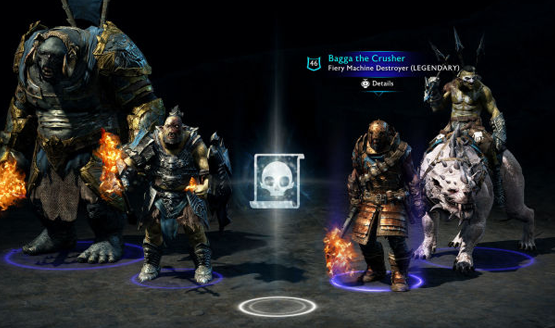The gaming industry has been abuzz lately with talk of loot boxes in games. Overwatch may have not been the first, but they certainly popularized the formula in the mainstream. There have been heated debates as Middle-earth: Shadow of War, Destiny 2, Star Wars Battlefront II and Assassin’s Creed: Origins all introduced their own forms of loot boxes into their games. Reaching out to the ESRB, Kotaku sought to learn if the Entertainment Software Ratings Board classified loot boxes in games as gambling.
ESRB does not consider loot boxes to be gambling. While there’s an element of chance in these mechanics, the player is always guaranteed to receive in-game content (even if the player unfortunately receives something they don’t want). We think of it as a similar principle to collectible card games: Sometimes you’ll open a pack and get a brand new holographic card you’ve had your eye on for a while. But other times you’ll end up with a pack of cards you already have.
ESRB has content descriptors for both “real gambling” and “simulated gambling.” Real gambling is classified as wagers that involve real world money, and simulated gambling is betting or wagering without real cash or currency. The ESRB spokesperson that spoke to Kotaku clarified that games with the “real gambling” descriptor will always receive an Adults Only–or AO–rating.
There seems to be a massive gray area that will heat further debate. The ESRB spokesperson’s comparison of loot boxes to that of booster packs of cards is a fair one. A product is always given as a result of the money paid, even if that product is something you don’t want. Real gambling is the ability to put money in and come out with nothing as a result, so loot boxes don’t count. By this technical description, I can see where the ESRB is coming from. Loot boxes are not the same as the utter disappointment from taking $100 to casino and coming away with literally nothing. Even a crane machine, with the possibility to not grab anything, is more of a gamble than loot boxes are.
On the other hand, even if their loot boxes always give a product, developers are tapping in to that same gambling high. It’s nothing new in geek culture. Blind boxes of figures, booster packs for card games, and even monthly loot crates full of mystery items all rely on the same exciting prospect of the surprise and excitement upon opening them. The propensity for disappointment heightens the excitement of receiving something desirable.
The solution here seems to be not lumping them in with the existing definition of gambling (which certainly doesn’t fit, due to a product always being received), but to create a new category of descriptor that relates to randomized loot and blind boxes. The increasing popularity of the mechanic in games necessitates the need for communication on a wider scale about the risks involved and the potential for getting items that you already have or don’t want.
We recently discussed our own thoughts on loot boxes here at PlayStation LifeStyle, with most of us feeling that as long as they can be earned in game too, paying real world money for them is something that can be overlooked. What do you think about the ESRB’s decision not to categorize in-game loot boxes as gambling?
[Source: Kotaku]








